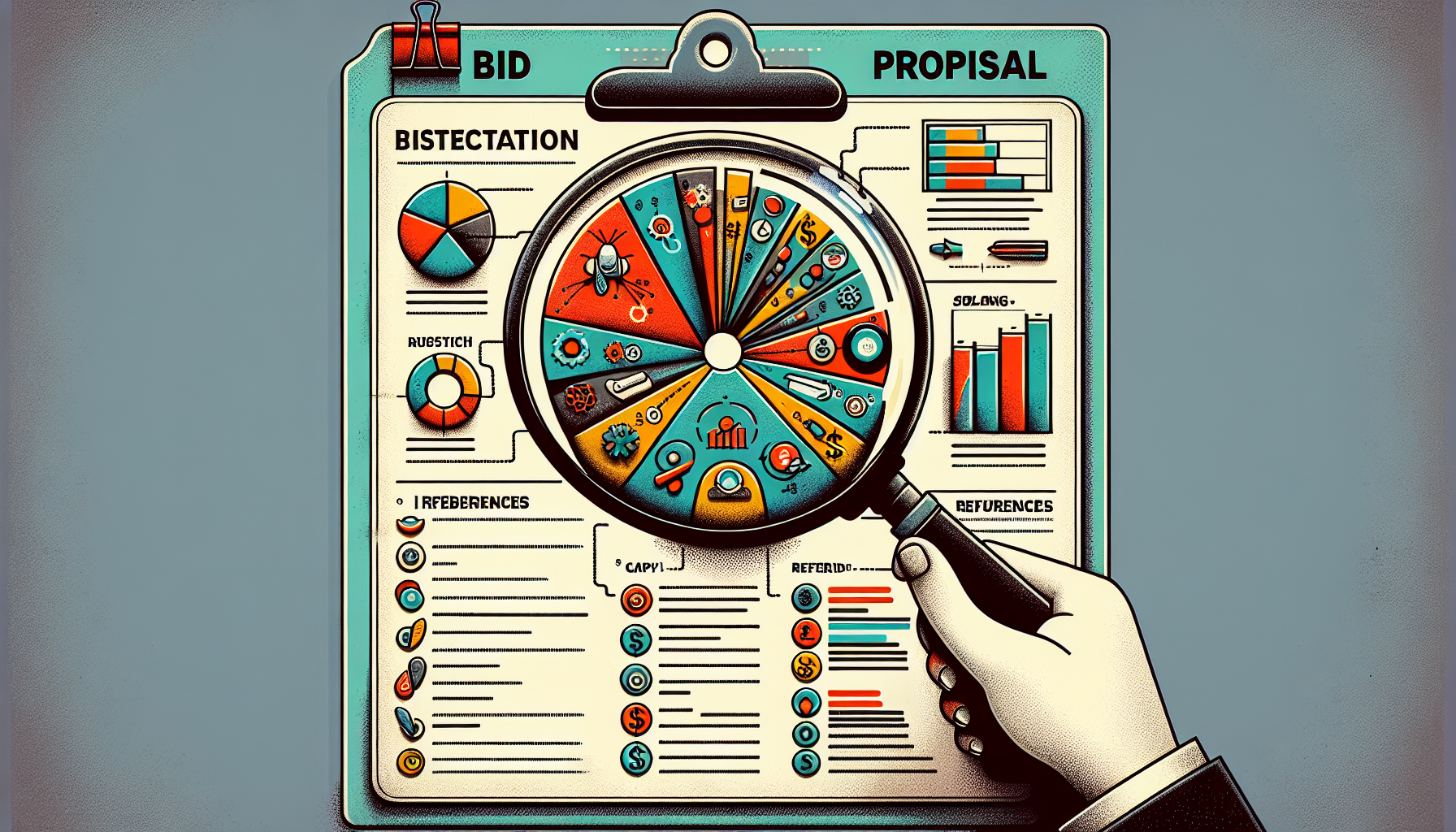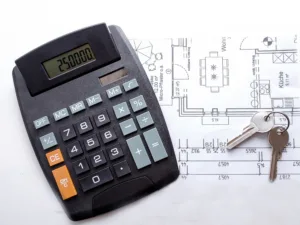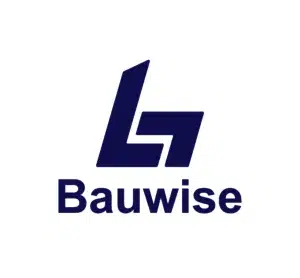If you’re in the construction business, you know that winning bids is crucial but challenging. What sets successful bids apart? This article reveals strategies that can elevate your bidding process, helping you identify profitable projects, outline detailed and professional proposals, and leverage technology for better results. Expect to learn not just how to win more construction bids, but how to confidently navigate risk management, and maximize your industry relationships without inflating your promises or falling into common pitfalls.
Key Takeaways
- Select projects that align with your construction company’s strengths, goals, and resources to increase the probability of winning bids and successfully executing projects.
- Create a detailed and persuasive bid proposal that outlines unique selling points, provides comprehensive cost breakdowns, and showcases relevant experience and client references.
- Utilize technology for efficiency in estimating, bid management, and communication, while continuously improving the bidding process and keeping abreast of industry trends and best practices.
Choosing the Right Projects for Your Construction Business

Securing a greater number of construction bids is more dependent on targeting quality projects that align with your company’s expertise rather than merely increasing the quantity. To enhance their probability of winning construction bids, it’s crucial for construction companies to:
- Understand what makes their company uniquely skilled
- Pursue projects that capitalize on those unique skills
- Turn down projects that don’t fit with their strategic goals or capacity
Adopting this focused strategy in choosing which projects to bid on can transform an average year into an outstanding one for a construction business.
Assess Your Company’s Strengths and Weaknesses
Prior to engaging in the competitive bid arena, it is prudent to pause and perform a SWOT analysis. Doing so will afford you an accurate understanding of your position, identify strengths you can capitalize on, and pinpoint areas that require enhancement.
By evaluating your firm’s internal capabilities alongside external market dynamics, you’ll be well-equipped to select projects for bidding that offer not just a high chance of success but also the opportunity for outstanding execution.
Determine Your Ideal Project Types
When evaluating potential construction projects, it’s crucial to consider aspects such as project profitability, the timelines for completion, and the credibility of the general contractor involved. Assessing these components is key to determining whether a particular construction project aligns with your company’s strategic and financial objectives.
Recognizing which types of construction projects best suit your company allows you to concentrate both effort and resources on submitting bids that resonate with your firm’s growth aspirations.
Filter Out Unsuitable Opportunities
Resisting the urge to bid on every project that comes your way can prove advantageous. Opting only for those projects that align with your firm’s strengths and principles guarantees you don’t compromise the worth of what you offer.
The focus should be on acquiring projects that are fitting, rather than just any opportunity. This approach fosters a collection of quality projects and maintains a clientele who appreciates your work.
Perfecting Your Bid Proposal

The bid proposal represents your initial and frequently most influential interaction with a potential client, akin to extending a handshake. It is essential to construct not merely a routine submission, but rather an effective presentation that asserts the superiority of your firm. To do this, you must exceed foundational requirements by submitting an all-encompassing, precise, and polished bid that accentuates what sets your company apart, includes meticulous cost details, and exhibits the experience relevant to their needs. Understanding the bid process, including effectively managing risks and prioritizing safety measures, is crucial in crafting winning proposals that stand out to clients.
Highlight Your Unique Selling Points
Amidst a multitude of proposals, the question arises: what distinguishes your bid from the rest? The key lies within your unique selling propositions. Leverage the insights gained from your SWOT analysis to identify and highlight these distinctive competitive edge in your submission.
It might be an avant-garde methodology you employ, advantageous cost-reduction collaborations with esteemed subcontractors, or perhaps unparalleled productivity. Whatever those advantages may be, ensure they are prominently showcased for the general contractor’s attention.
Provide Detailed Cost Breakdowns
Transparency is paramount in construction bids, particularly regarding the expenses involved. By providing a clear and comprehensive breakdown of costs—including labor costs, materials, and potential contingencies—you showcase your reliability and foster trust with prospective clients. Labor costs are crucial for estimating and tracking project labor expenses, encompassing manpower productivity, expertise, wage variations, regulatory requirements, and overtime costs. This demonstrates that you possess a thorough understanding of the project’s requirements, including government-mandated wage rates and prevailing wage laws for public construction projects, and are equipped to handle it efficiently.
Focusing on these details can set your bid apart from competitors by highlighting your dedication to offering quality value in the construction project you aim to undertake.
Showcase Relevant Experience and References
In a bid proposal, leveraging your history of successful previous projects is highly compelling. By showcasing favorable testimonials from clients and strong references, you can effectively demonstrate your reliability and skills in construction. Letting the experience communicate for itself offers tangible proof of your expertise in managing such projects.
Utilize Technology to Enhance Your Bidding Process

The infusion of technology is revolutionizing the construction bidding process in today’s digital era. Utilizing software for precise cost estimates and employing bid management systems can substantially enhance both the efficiency and precision of your operations.
As a construction manager, harnessing the power of this digital transformation within the construction sector could sharpen your competitive advantage when submitting bids. Staying abreast with current technological advancements and trends enables construction managers to leverage these innovations for improved performance during the bidding process.
Estimating Software Solutions
Software solutions for estimating play a crucial role in producing more accurate estimates quickly and effectively. Software such as Buildxact and PlanSwift allows you to select the most appropriate tool based on your business needs, whether it’s managing bids for residential projects or overseeing large-scale project management tasks.
By minimizing the time dedicated to generating estimates, these resources become available to concentrate on other vital components of crafting a successful bid.
Bid Management Platforms
Platforms such as PlanHub and BuildingConnected serve as construction bidding marketplaces that assist in streamlining your bid management by offering tools to:
- Monitor your ongoing bids
- Network with a community of experts in the construction field
- Ease the complexity of the entire bidding process
- Handle document management effectively
- Facilitate communication among team members
- Maintain organization throughout various projects
Such functionalities are vital when juggling numerous bids at once since they have a significant influence on the bid hit ratio, which is key to success within construction bidding.
Collaboration and Communication Tools
Effective collaboration and communication are essential foundations for a successful construction bid. Tools such as Procore support the management of resources throughout the various phases of construction, particularly during the bidding process. Maintaining consistent check-ins and establishing unambiguous channels of communication guarantee that all participants are aligned, thereby greatly enhancing the strength of your proposals.
Develop Strategic Partnerships and Networking

In the construction industry, forging strong professional connections and strategic alliances is essential. Such networks can significantly bolster your bid by showcasing common values with clients and ensuring access to dependable subcontractors.
Networking serves as a key component of an effective bidding strategy by unlocking potential new prospects in the field of construction.
Cultivate Relationships with General Contractors
Building enduring connections with general contractors may serve as the cornerstone for securing continuous work. With CRM solutions such as FollowUp CRM, streamlining your sales procedures and maintaining these vital relationships becomes more efficient.
By customizing your interactions and follow-up methods to align with what contractors prefer, you could elevate yourself as their preferred partner when they consider who to engage for upcoming projects.
Partner with Reliable Subcontractors and Suppliers
Establishing robust alliances with subcontractors and suppliers can considerably enhance the attractiveness of your bid. Such partnerships contribute specialized knowledge and facilitate better management of resources, which in turn improves project implementation. Developing a history of jointly accomplished successful projects strengthens the standing of your company within the sector.
Attend Industry Events and Join Associations
Participating in industry gatherings and becoming a member of relevant associations are great strategies for remaining updated and establishing connections. They offer the opportunity to understand emerging trends, network with potential collaborators, and ensure you’re up-to-date with advancements within the industry.
For example, by attending conferences designed for bidders, you can acquire comprehensive knowledge about various projects. This enables you to develop proposals that not only respond directly to detailed issues but also showcase your competencies in overcoming possible obstacles.
Understanding and Managing Risk Factors

Managing risks is essential in the process of construction bidding. By recognizing and preparing for typical hazards linked to construction projects, your company can safeguard against potential financial setbacks. Embedding strategies to lessen these risks within your bid proposals shows prospective clients that you are both prescient and reliable, attributes that may tip the scales in your favor when it comes time for them to choose a contractor.
Identify Common Risks in Construction Projects
Construction projects entail numerous hazards, including potential safety concerns and legal confrontations. It’s essential to identify such risks at an early stage, particularly in the preconstruction phase. To enhance your preparedness and devise a bid that truly encapsulates the intricacies of the project, consider these critical areas of risk.
- Economic uncertainties
- Contractual liabilities
- Executional challenges
- Ecological considerations
By evaluating these elements carefully, those involved in construction can craft bids that more accurately account for the multitude of variables inherent to construction endeavors.
Develop Risk Management Strategies
Creating strategies for managing risk involves formulating a proactive approach to tackle possible challenges. You may opt to:
- Steer clear of risks
- Shift risks onto another party
- Lessen the impact of risks
- Embrace risks
By establishing a definitive plan, you can address these issues with efficiency. Doing so not only safeguards your enterprise, but also projects an image of proficiency and reliability to prospective customers.
Incorporate Risk Mitigation Measures in Your Bid Proposal
By presenting a bid proposal with a clearly outlined contract and work scope, you effectively reduce potential risks by delineating precise rights and obligations for every party concerned. Understanding the scope of work and maintaining a good safety record are crucial for winning construction bids, as these factors significantly impact your ability to secure projects. Demonstrating your risk management strategy within the bid, particularly via:
- engaging dependable subcontractors
- performing extensive risk evaluations
- applying safety measures
- ensuring transparent dialogue with customers
You bolster client assurance and trust in the strength of your proposed offer.
Continuously Improve Your Bidding Process
In the ever-changing world of construction, it’s essential that your bidding process remains agile. A commitment to continuous enhancement distinguishes a progressive organization. To polish your approach to construction bidding, consider these points:
- Review previous bid outcomes meticulously to pinpoint potential enhancements.
- Apply insights gained from past bidding experiences to circumvent recurring errors.
- Keep abreast of the latest trends within the construction industry so that your bids remain competitive and meet client demands.
Incorporating construction bidding tips into your strategy can further refine and enhance your bidding practices, ensuring you stay ahead in the competitive construction market.
Adhering to such tactics can help you keep pace with market changes and boost the likelihood of successful bid wins in future projects.
Analyze Past Bid Performance
It’s crucial to continually scrutinize the performance of previous bids to discern successful strategies from ineffective ones. Monitoring how well your proposals fare and actively following feedback allows you to pinpoint opportunities for enhancement and adjust your methods as needed. Such persistent assessment guarantees that you consistently present your strongest efforts in every bid.
Implement Lessons Learned
Each bid presents a learning opportunity, regardless of its outcome. By leveraging the knowledge acquired from every attempt, you can refine your strategies and sharpen your focus. This process of perpetual improvement is essential for winning more bids and cultivating repeat business.
Monitor Industry Trends and Best Practices
It’s imperative to remain abreast of industry trends and superior methodologies, as this is not a matter of choice but necessity. Engaging in sector events and involvement with professional bodies allows you to keep pace with the latest developments within the realm of construction. Such insights are critical not only for refining your approaches to project bids, but also play a key role in precisely predicting costs associated with projects.
Summary
To win more construction bids, it’s not just about being good at what you do, it’s about being smart in how you present it. From selecting the right projects to crafting compelling proposals, leveraging technology, building relationships, managing risks, and continuously learning, every step is an opportunity to stand out. Embrace these strategies, and you’ll not only win more bids, but also build a reputation for excellence that will carry your business into the future.
Frequently Asked Questions
What are the benefits of using estimating software in the bidding process?
Utilizing estimating software enhances precision and boosts efficiency in projecting costs, which saves valuable time and is crucial for securing profitable bids in the construction industry.
How can strategic partnerships with subcontractors and suppliers improve my construction bids?
Forming strategic alliances with subcontractors and suppliers can elevate the quality of your construction bids by adding specialized skills, boosting efficiency throughout the project, and demonstrating a history of successfully completed projects. This approach serves to make your proposals more attractive to potential clients.
Such collaborations may offer you an advantage during the competitive bidding process for construction projects.
Why is risk management important in construction bidding?
In the construction industry, effective risk management during the bidding process is essential. It reduces prospective losses, upholds safety standards and demonstrates to clients that you are thoroughly prepared for potential challenges. This not only fortifies your reputation, but also elevates your competitive edge within the construction sector.
How does attending industry events and joining associations benefit my bid proposals?
Participating in sector-specific gatherings and becoming a member of relevant organizations can enhance your bid proposals, as they offer access to up-to-date trends, exemplary methods, and chances for networking. Such engagements are likely to yield critical knowledge beneficial for your projects.
What steps can I take to continuously improve my bidding process?
To enhance the efficacy of your bidding process, it is essential to conduct a thorough review of previous bid outcomes. By incorporating insights gained, soliciting evaluations, and keeping abreast with current industry developments, you can polish your approaches and submissions.
Such actions will strengthen your bid preparation procedures and improve the probability of achieving successful results.
Additional Resources
Winning construction bids is a continuous learning process. To stay on top of your game, there are many resources available that can help you improve your skills and strategies. Here are some additional resources that you may find helpful:
- Websites and Organizations: There are many websites and organizations that offer information and resources on bidding and construction. Some examples include the Associated General Contractors of America, the National Association of Home Builders, and the Construction Management Association of America.
- Books and Articles: There are also many books and articles available on bidding and construction that can provide valuable insights and tips. Some popular titles include “Construction Bidding and Estimating” by Adam Ding, “Winning Government Contracts” by Malcolm Parvey, and “The Contractor’s Guide to Winning Contracts” by Andrew Atkins.
- Tools and Software: Finally, there are many tools and software programs available that can help you streamline your bidding process and improve your accuracy. Some examples include Bid Ocean, SmartBid, and ConstructConnect.
By taking advantage of these additional resources, you can stay ahead of the competition and increase your chances of winning more construction bids.
In conclusion, winning construction bids requires careful planning, effective communication, and a commitment to excellence. By implementing the strategies outlined in this article and leveraging additional resources, you can position yourself for success in the industry. Good luck and happy bidding!
Related posts
Read our other articles where you can find useful and relevant information about making your construction business profitable:
- How to Start a Construction Company: 10 Steps to Start Your Own Business
- How to Increase Your Construction Company’s Profitability
- Enhancing Construction Efficiency: Key Factors and Strategies
- How to be a better construction project manager?
- 7 Benefits of Construction Management Software
About the Author

Bret-Gregor Maidre
Bret-Gregor Maidre is the Head of Marketing at Bauwise, known for his strategic prowess in digital marketing. With a background in digital journalism and marketing from Tallinn University, Bret combines storytelling with marketing insight to significantly expand Bauwise’s customer base and revenue. View profile






